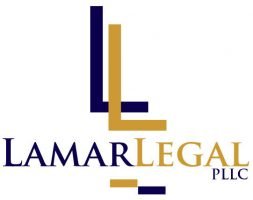
What is the Beneficial Ownership Information Report?
In today’s evolving corporate landscape, regulatory compliance has become more critical than ever. One key requirement that businesses operating in the United States must understand is the Beneficial Ownership Information Report (BOIR). With increasing scrutiny on ownership structures to combat financial crimes, businesses and individuals must stay informed about BOIR requirements. This guide will break down what beneficial ownership reporting entails, why compliance matters, how to complete the report, and the impact of the Corporate Transparency Act (CTA).
What is Beneficial Ownership Reporting?
Beneficial Ownership Information Reporting requires certain entities to disclose detailed information about their beneficial owners—individuals who ultimately own or control the company. The primary goal of this reporting is to enhance transparency and prevent illicit activities such as money laundering, tax evasion, and terrorism financing.
The Corporate Transparency Act (CTA), enacted in January 2021, mandates that reporting companies submit their beneficial ownership details to the Financial Crimes Enforcement Network (FinCEN). This legislation significantly changes how ownership information is managed and shared, promoting a more transparent and accountable business environment.
What is the Corporate Transparency Act?
The Corporate Transparency Act is a landmark piece of legislation designed to combat financial crime by increasing transparency in corporate ownership. Under the CTA, certain entities, including corporations and limited liability companies (LLCs), are required to disclose information about their beneficial owners when they register to do business in the U.S.
By eliminating the anonymity that certain business structures have historically provided, the CTA enables government agencies to track and investigate suspicious activities more effectively. The act requires businesses to report the following details for each beneficial owner:
- Full name
- Date of birth
- Residential address
- Unique identifying number from a government-issued ID (e.g., driver’s license or passport)
FinCEN securely stores this information, allowing access only to authorized law enforcement and regulatory agencies.
Who Qualifies as a Beneficial Owner?
A beneficial owner is any individual who directly or indirectly exercises substantial control over an entity or owns a significant interest in it. Under the CTA, a beneficial owner is someone who meets one or more of the following criteria:
- Ownership: Holds at least 25% of the ownership interests in the entity.
- Control: Exercises substantial control over the entity, such as a senior officer or an individual with decision-making authority.
Understanding who qualifies as a beneficial owner is essential for compliance, as it determines who must be reported.
How to Complete the Beneficial Ownership Information Report
Filing the BOIR involves several key steps. Here’s a streamlined approach to ensure accurate and timely submission:
- Identify Beneficial Owners
Determine all individuals who meet the beneficial ownership criteria outlined in the CTA. - Gather Required Information
Collect the necessary details for each beneficial owner, including their name, date of birth, residential address, and government-issued ID number. - Complete the Report
Accurately input the collected information into the FinCEN reporting forms. - File the Report
Submit the completed report through the FinCEN portal before the deadline to avoid penalties. - Maintain Records
Keep a copy of the submitted report and all related documents for future reference and compliance checks.
Why Seek Professional Assistance for BOIR Filing?
Filing the BOIR can be complex, and errors may lead to penalties. Seeking professional assistance ensures:
- Expert Guidance: Legal professionals help interpret the CTA’s nuances and ensure compliance.
- Accuracy and Compliance: Professionals minimize errors that could lead to fines or legal issues.
- Efficiency: Experts streamline the process, allowing business owners to focus on core operations.
- Risk Mitigation: Legal experts identify and address potential compliance risks proactively.
Penalties for Non-Compliance
Failing to file the BOIR or submitting false information can result in serious consequences:
- Civil Penalties: Fines of up to $500 per day for each day the violation continues.
- Criminal Penalties: Intentional misreporting can lead to fines of up to $10,000 and imprisonment for up to two years.
- Reputational Damage: Non-compliance can harm a business’s credibility, affecting investor and customer relationships.
How Does the BOIR Impact LLCs?
LLCs, commonly used for asset protection and anonymity, must comply with BOIR requirements. Like corporations, LLCs must disclose their owners if they meet the CTA’s criteria. This mandate promotes transparency and ensures compliance with federal regulations, especially for small businesses and startups that may not have extensive legal resources.
Who is Exempt from Filing the BOIR?
Not all entities are required to file a BOIR. The CTA provides exemptions for specific business categories, including:
- Large Companies: Businesses with more than 20 full-time employees, a physical U.S. office, and over $5 million in gross receipts or sales.
- Government Entities: Organizations established under U.S. federal, state, or tribal law.
- Certain Regulated Entities: Financial institutions and publicly traded companies subject to existing reporting requirements.
- Inactive Entities: Businesses that have been dissolved or are in liquidation.
Before assuming exemption status, businesses should confirm eligibility to ensure compliance.
When is the BOIR Due?
The timing of BOIR submissions is crucial for compliance:
- New Entities: Must file at the time of formation alongside registration documents.
- Ownership Changes: Entities must update their filings if ownership or control changes.
- Annual Filings: Although not required annually, maintaining updated records is essential in case of audits.
How We Can Help
Navigating BOIR requirements can be overwhelming, but you don’t have to do it alone. At LAMAR LEGAL PLLC, we provide expert assistance to help businesses and individuals file their BOIR accurately and on time. Our team is dedicated to ensuring compliance so you can focus on running your business with peace of mind.
Take the next step today by purchasing our BOIR filing service. With our professional support, you can rest assured that your beneficial ownership information is handled with accuracy and transparency.
Not sure if your entity needs to file a BOIR? Contact us today to learn more about our services and how we can assist you in meeting your compliance needs.








